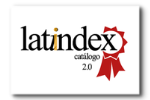A influência religiosa no voto evangélico: uma análise quantitativa e sociológica com base em pesquisa de campo
Palavras-chave:
Voto evangélico, Liderança religiosa, Teoria do Fluxo de Comunicação em Dois Níveis, Comportamento eleitoral, Mobilização religiosaResumo
O processo de tomada de decisão política é marcado por uma complexa rede de interações sociais, influências comunitárias e líderes de opinião. Este artigo investiga o fenômeno do voto evangélico no Brasil, analisando a influência dos líderes religiosos sobre o comportamento eleitoral de seus fiéis. Baseado nas teorias de Paul Lazarsfeld e colaboradores, como em The People's Choice (1944), Personal Influence (1955) e Voting: A Study of Opinion Formation in a Presidential Campaign (1957), este estudo emprega uma abordagem quantitativa para compreender o impacto das lideranças religiosas e o papel da comunicação em dois níveis na conformação das escolhas eleitorais. Os dados revelam que quanto maior a participação do fiel nas atividades religiosas, maior é a probabilidade de que suas decisões políticas sejam moldadas por líderes religiosos. Conclui-se que o voto evangélico reflete não apenas uma escolha individual, mas um fenômeno profundamente social e comunitário, mediado por interações religiosas que reforçam valores morais e políticos.
Referências
Burity, J. (2009). Igrejas evangélicas e política no Brasil. Revista Brasileira de Ciências Sociais. Disponível em: https://www.rbcsocial.com.br/igrejas-evangelicas-e-politica. Acesso em 9 jan. 2024.
Freston, P. (1994). Evangélicos na política brasileira: História e consequências. Estudos Avançados. Disponível em: https://www.revistas.usp.br/estudosavancados/article/view/12712. Acesso em 9 jan. 2024.
Katz, E., & Lazarsfeld, P. (1955). Personal influence: The part played by people in the flow of mass communications. New York: Free Press.
Lazarsfeld, P. F., Berelson, B., & Gaudet, H. (1944). The people's choice: How the voter makes up his mind in a presidential campaign. New York: Columbia University Press.
Lazarsfeld, P. F., Berelson, B., & McPhee, W. N. (1957). Voting: A study of opinion formation in a presidential campaign. Chicago: University of Chicago Press.
Mariano, R. (2004). Neopentecostais e política no Brasil. Revista de Sociologia e Política. Disponível em: https://www.revistasociologiaepolitica.com.br/neopentecostais-politica. Acesso em 9 out. 2024.
Oro, A. P. (2003). A Igreja Universal e a política brasileira: Alianças e disputas. Ciências Sociais e Religião. Disponível em: https://www.cienciasociaisreligiao.com.br/universal-politica. Acesso em jan. out. 2024.
Weber, M. (1999). Economia e sociedade: Fundamentos da sociologia compreensiva. Brasília: UnB.
IBGE – Instituto Brasileiro de Geografia e Estatística. (2023). Censo 2023: População evangélica no Brasil atinge 30% do eleitorado. IBGE. Disponível em: https://www.ibge.gov.br/censo-evangelicos-2023. Acesso em 9 jan. 2024.
Downloads
Publicado
Como Citar
Edição
Seção
ARK
Licença

Este trabalho está licenciado sob uma licença Creative Commons Attribution 4.0 International License.





















